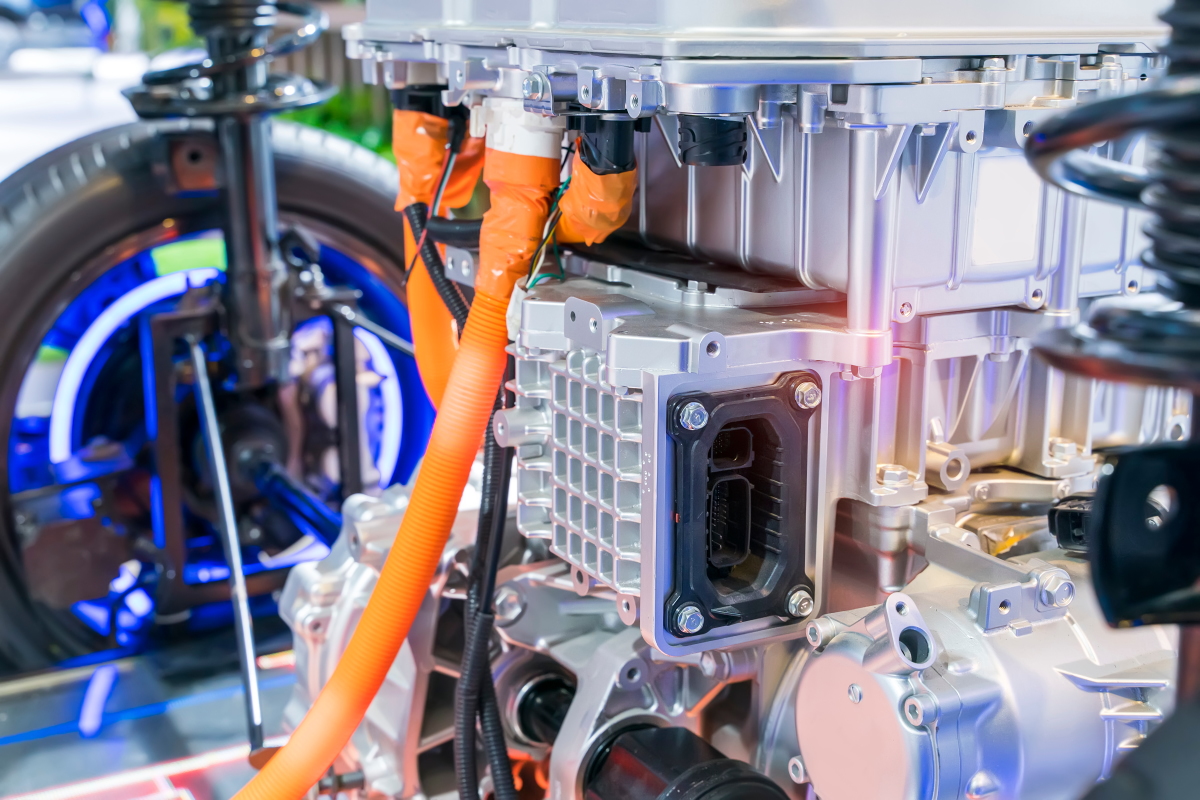Range anxiety is the biggest fear for buyers of electric vehicles around the world. Asia Pacific is dominating the global EV battery market and it seems the region holds the key to this solution with the high concentration of R&D of the new age solid-state batteries.
This new battery technology is poised to replace traditional lithium-ion batteries in electric vehicles and offers substantial upgrades. However, the technology is still in a nascent stage, and it may take a few years before we see sales of EVs fitted with solid-state batteries.
The global market for solid-state batteries was valued at $0.5 bn in 2020, as per an estimate by India-based research firm Allied Market Research. The market is expected to reach $3.4 bn by 2030, growing at a CAGR of 18% between 2021-2030.
Among its various applications, this new battery technology offers a significant advantage over lithium-ion batteries. They have higher density and use liquid electrolyte solutions. The batteries have a negligible risk of explosion or fire and thus require no safety components, giving more space for other devices to be used in EVs. Additionally, solid-state batteries have a higher number of charge cycles of up to 10,000 compared to lithium-ion storage which has 2000 to 3000 cycles before gradual degradation. They can also be charged faster and provide nearly double the range of the incumbent lithium-ion batteries.
Asian countries take the top spot
Asia’s EV battery innovation is primarily led by Japan, South Korea, and China and the region is also the largest market for EVs.
Japan is currently leading in solid-state battery development around the globe and six companies from the country are among the top 10 patent holders for the technology. More recently, Japan estimated that it needs $24 bn in investment from the public and private sectors to boost its battery manufacturing prowess. Japan’s Ministry of Economy, Trade and Industry has set a target of securing 30,000 trained workers for battery manufacturing and supply chains by 2030.
Nearly 68% of patents for this kind of energy storage technology are owned by Japanese firms, followed by the US (16%) and South Korea (12%), with China trailing behind.
Japan and South Korea are currently the top innovators for solid-state batteries in Asia Pacific, but their share in the current lithium-ion battery market is less than 3% each. China on the other hand provides the world with more than half of the total lithium-ion batteries.
Asian companies developing solid-state batteries
Several companies in Asia have already taken the top spot in solid-state battery development. Earlier in July, a study conducted by Nikkei found that Japanese carmaker Toyota was leading in solid-state battery patent applications around the globe with over 1,331 patents. The company has increased its patent ownership by 40% between 2016 and 2020.
The carmaker has been studying solid-state batteries since the 1990s. It recently created a working prototype vehicle and has plans to launch a commercially produced vehicle fitted with the new technology by 2025.
Japan’s Panasonic ranks second in solid-state battery patent holdings. Toyota and Panasonic have also formed a joint venture to research and develop the upcoming battery technology. Panasonic has partnerships with several other companies, such as Tesla, Belgium-based Imec, and a few others.
Another Japanese company innovating in the EV battery space is petroleum refiner Idemitsu Kosan, which holds 272 solid-state battery patents. The company is developing solid electrolytes, a key material used in the new battery technology. Idemitsu Kosan is working with Belgium-based circular material technology firm Umicore to develop battery materials.
In South Korea, Samsung SDI and LG Chem are leading the research and development of the new battery technology. Samsung SDI is working on producing solid-state batteries as early as 2023, sooner that its previous target of 2027. The company has not revealed its plans of how it aims to meet this ambitious target or if it has had any breakthrough to start commercial production.
Samsung has also set up research and development hubs in the US and Germany to work with universities, research institutes and startups to develop new generations of battery technologies. It also has plans to set up a research institute in China in 2023.
LG Energy Solution, the listed unit of LG Chem, recently developed a solid-state battery in collaboration with the University of California San Diego.
In China, a leader in lithium-ion batteries, a startup called Qing Tao Energy started mass producing solid-state batteries in 2019. The firm has also set up a manufacturing plant in eastern China. Among existing battery makers, the world’s largest lithium producer by market capitalization Ganfeng Lithium is constructing a battery production unit in Chongqing. The project is vying to become the largest battery production base in China. Ganfeng is already producing a hybrid form of solid-state batteries with low capacity.
Earlier this year, Dongfeng Motor said it had delivered EVs fitted with solid-state batteries it jointly developed with Ganfeng.
Another Chinese firm, Volta Technology, announced that it is starting pilot production for this new battery technology as early as 2023, with a commercial launch later in the year.


 Australia
Australia China
China India
India Indonesia
Indonesia Japan
Japan Malaysia
Malaysia Philippines
Philippines Singapore
Singapore South Korea
South Korea Taiwan
Taiwan Thailand
Thailand Vietnam
Vietnam







